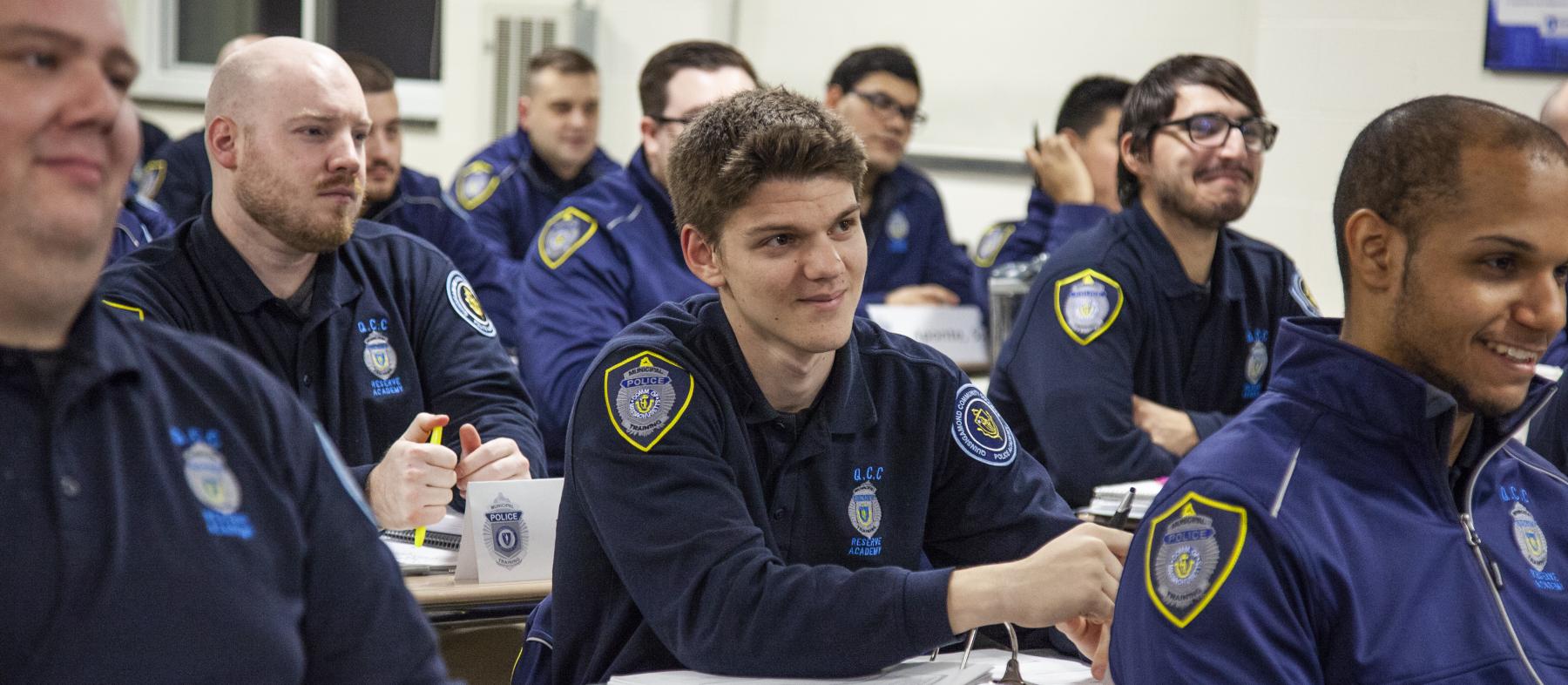Program Goals:
The Criminal Justice associate degree program provides students with a broad academic background in the area of criminal justice and the opportunity to develop the skills needed for pursuing a public service career in policing, corrections, courts, probation, parole, federal agencies, the private sector, or transfer to a four-year institution.
Student Learning Outcomes:
Upon completion of the program, graduates will be able to:
- Identify the various sources of law and recognize how the different components of the legal system operates to settle both criminal and civil conflicts.
- Explain the dimensions of crime and criminal behavior and the approaches to prevention and treatment.
- Summarize from a historical and systemic perspective criminal justice institutions (i.e., police, courts, corrections) and how they relate to each other.
- Articulate information clearly to a variety of audiences by means of oral presentation, written documents and reports, and graphs, charts, and tables.
- Examine the importance of diversity, culture, and ethical considerations that criminal justice professionals encounter in the workforce.
- Compare and contrast the operations and administration of the criminal justice system.
Admissions Process:
Admissions inquiries should be directed to admissions@qcc.mass.edu. Prospective students may apply to the program of their choice by following the enrollment steps at www.QCC.edu/enrollment-steps.
Program Admissions Requirements:
Students should note that some first semester courses carry minimum prerequisites. Refer to the program grid.
- High School Diploma or GED/HiSET.
CORI, SORI, Finger Printing & Drug Testing:
Criminal Offender Record Information (CORI) and Sex Offender Registry Information (SORI) checks are not required. Fingerprinting and drug testing are not required.
Additional Cost:
See the Program Fees page.
Technical Performance Standards:
See the Technical Performance Standards page. (Note: Not all programs have technical performance standards).
Credit for Prior Learning:
Credit for Prior Learning (CPL) allows students to use skills they already have towards a college degree or certificate. Work, life, volunteer and military experience may be translated into credit, allowing students to take fewer classes and earn their degree faster. CPL eliminates redundancies for students who have already earned credentials or mastered skills required for their program of study. Email experience@qcc.mass.edu for more information and eligibility.
- As required by the Massachusetts Department of Higher Education for the ongoing approval for participation in the Police Career Incentive Pay Program (PCIPP), also known as the “Quinn Bill Program”, the QCC Criminal Justice program has instituted a policy that:
- Credit for prior learning options for this program are limited.
- Students enrolled in this program may be able to earn academic credit for DANTES and CLEP Exams (6 credit maximum).
- Only credit from a regionally accredited institution of higher education is transferrable to the QCC Criminal Justice program.
- Students who have successfully completed a Local Police Academy recognized by the Municipal Police Training Committee or a State Police Academy in Massachusetts may be awarded six (6) college credits towards the QCC Criminal Justice degree.
- The credits that will be awarded are as follows:
- CRJ 111 Criminal Law (3 credits)
- CRJ 231 Introduction to Policing (3 credits)
- Students who meet the criteria and wish to receive the credits towards their degree must submit proof of completion from the Local or State Police Academy. A certificate of completion from the academy must be certified and submitted directly from MPTC or the State Policy Academy Training Committee. The certificate can be sent to experience@qcc.mass.edu.
- Note: Not all colleges and universities accept credits earned through a police academy. Students that are planning to transfer to another college or university should check with their transfer office to make certain that the institution accepts police academy credits.
Career Outlook:
Please consult the Massachusetts Career Information System at https://masscis.intocareers.org/ or the Occupational Outlook Handbook at www.bls.gov/ooh/ for specific occupational information. The CIP code for this program is 43.0107.
Transfer Articulations & Opportunities:
Prospective students may learn more about transfer articulation agreements at www.QCC.edu/agreements. More information regarding transfer opportunities is available at www.QCC.edu/transfer.

